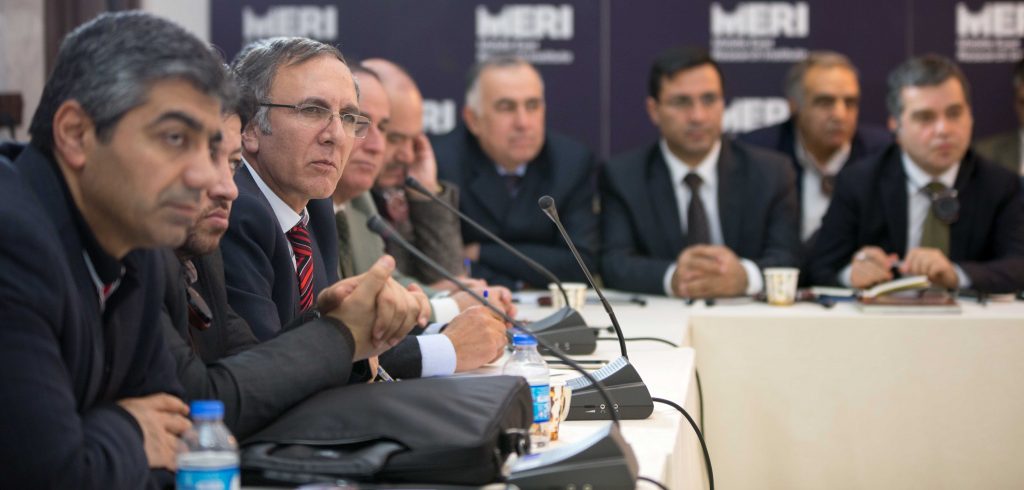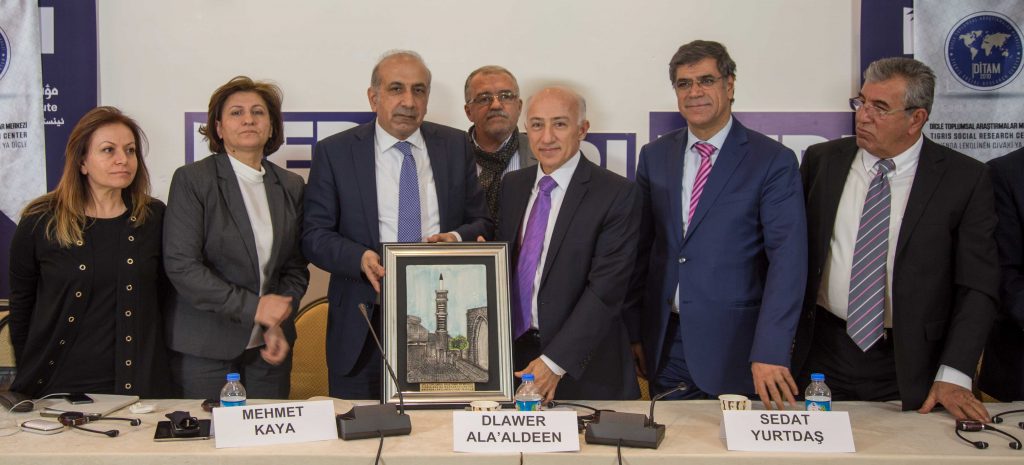‘The Kurdish issue is a complex matter that requires internal and external efforts and if stability is not achieved it would be difficult for it to be resolved’ said Mehmet Kaya, President of DİTAM, in a roundtable meeting organised by MERI on 6 February 2017.

The event was attended by a delegation from DİTAM, Tigris Community Research Center, which is based in Diyarbakir, including Sedat Yurtdaş, Şeyhmus Diken, Mehmet Vural, and Remziye Tanrikulu, as well as intellectuals, various political party representatives and academics. The speakers addressed the political dynamics in Turkey in addition to the Kurdish issue and the prospects of its resolution. They also highlighted the role of think tanks and research institutions in providing rigorous analysis and specific recommendations to identify ways forward.

Attendants engaged in a lively discussion with the speakers covering numerous areas in the Q&A session, such as the role of civil society in stressing the importance of solving the Kurdish issue and achieving stability via dialogue without resorting to violence. Finally, the political transition in Turkey from a parliamentary to a presidential system was debated and there was consensus that this is not objectionable provided that federalism is guaranteed.
The first half of the event was live streamed and is available below:
* * * * *
About MERI: The Middle East Research Institute is Iraq’s leading policy-research institute and think tank. It is an independent, entirely grant-funded not-for-profit organisation, based in Erbil, Kurdistan Region. Its mission is to contribute to the process of nation-building, state-building and democratisation via engagement, research, analysis and policy debates.
MERI’s main objectives include promoting and developing human rights, good governance, the rule of law and social and economic prosperity. MERI conduct high impact, high quality research (including purpose-based field work) and has published extensively in areas of: human rights, government reform, international politics, national security, ISIS, refugees, IDPs, minority rights (Christians, Yezidis, Turkmen, Shabaks, Sabi mandeans), Baghdad-Erbil relations, Hashd Al-Shabi, Peshmarga, violence against women, civil society. MERI engages policy- and decision-makers, the civil society and general public via publication, focused group discussions and conferences (MERI Forum).

